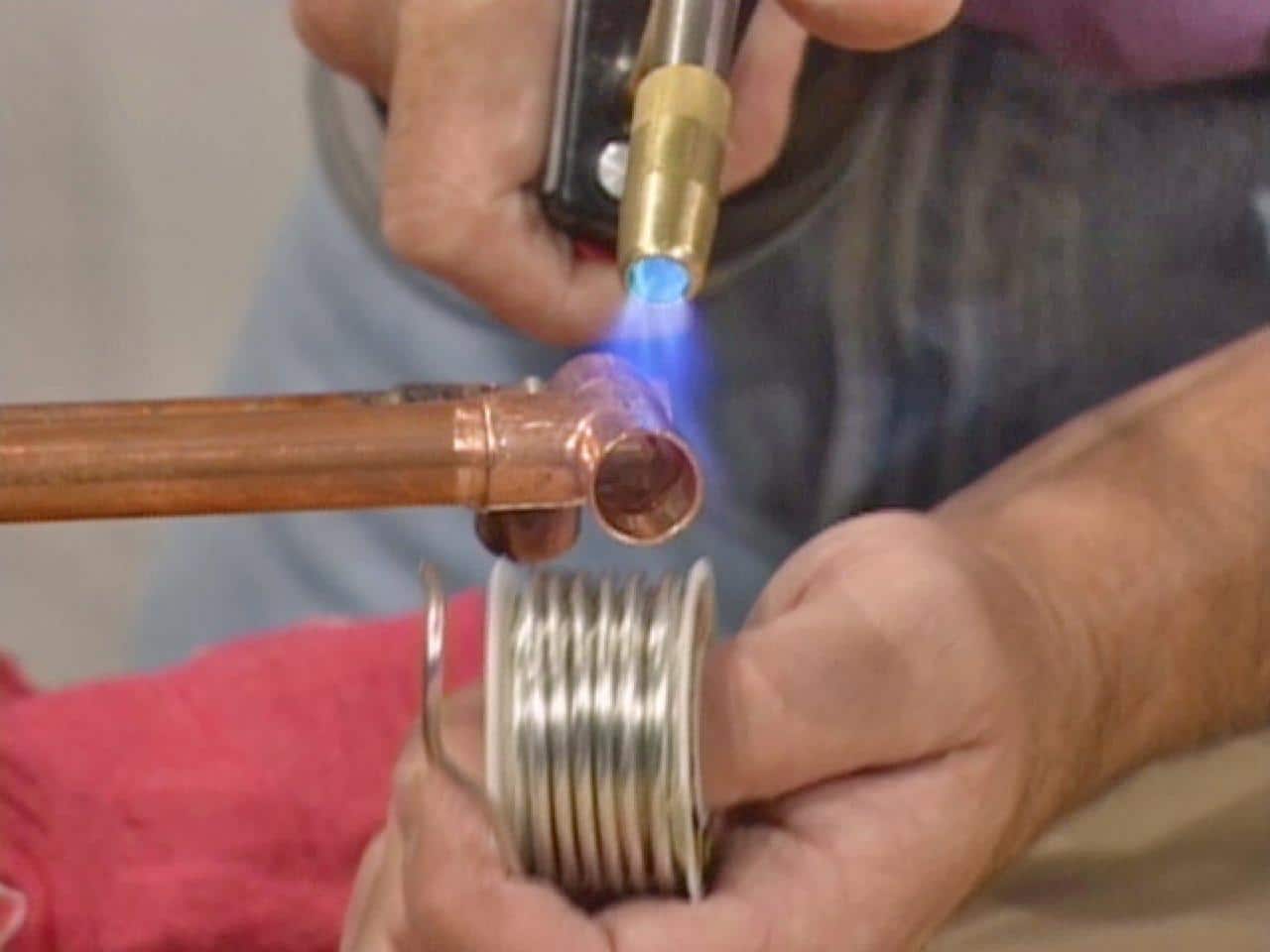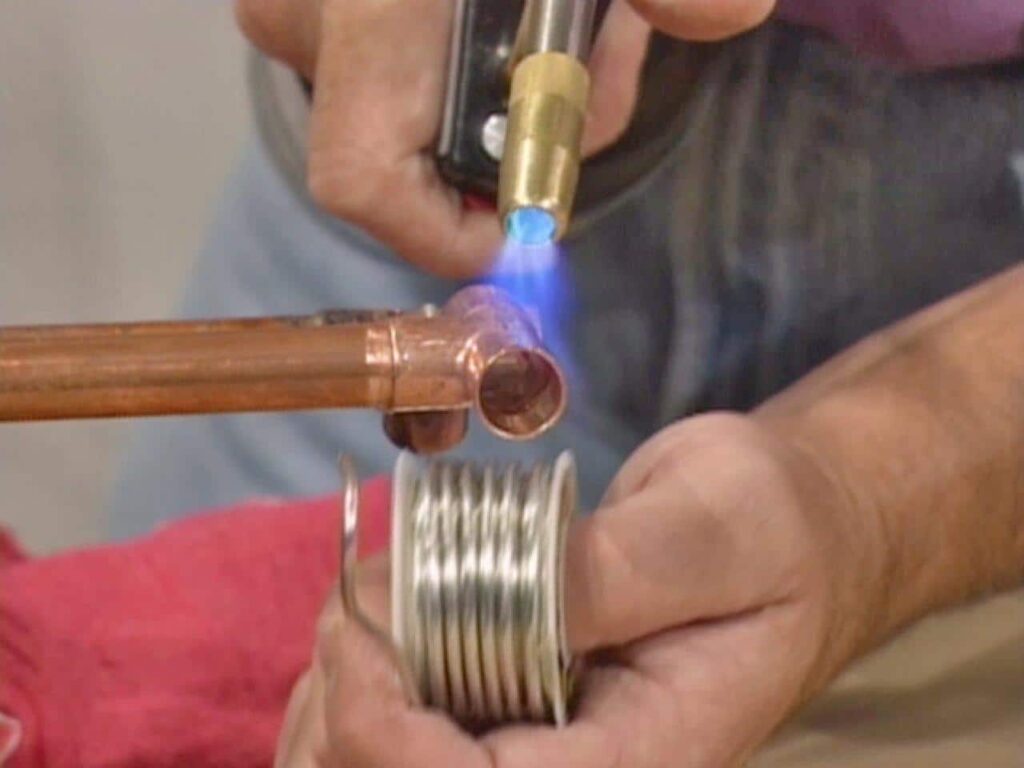When it comes to electrical work, using the right materials is crucial for safety and efficiency. One common question that arises is whether plumbing solder can be used for electrical purposes. While the two may seem similar, they are actually intended for different applications. Plumbing solder is designed to join pipes and fittings in plumbing systems, while electrical solder is specifically formulated for use in electrical connections. So, can plumbing solder be used for electrical? Let’s explore.
Using plumbing solder for electrical work is not recommended and can pose serious risks. Unlike electrical solder, which is typically made from a mix of tin, lead, and flux, plumbing solder often contains higher levels of lead, which is hazardous to health when released into the air through the soldering process. Additionally, plumbing solder may not have the same conductivity as electrical solder, which could result in poor electrical connections or even overheating. To ensure the safety and effectiveness of your electrical work, it is always best to use solder specifically designed for electrical applications.
No, you should not use plumbing solder for electrical work. Plumbing solder is made of a different type of alloy that contains lead, which is not safe for electrical connections. Electrical solder, on the other hand, is specifically designed for electrical applications and is lead-free. It has a flux core that helps in creating a strong and reliable electrical connection. Using plumbing solder for electrical work can lead to poor conductivity, potential overheating, or even electrical failures. It’s crucial to use the correct solder for each specific application to ensure safety and performance.

Can You Use Plumbing Solder For Electrical Wiring?
When it comes to electrical work, safety and adherence to appropriate codes and standards are of utmost importance. One common question that arises is whether it is acceptable to use plumbing solder for electrical wiring. While plumbing solder and electrical solder may seem similar, they are designed for different purposes and have different compositions. It is crucial to understand the distinctions between the two and follow the appropriate guidelines to ensure the safety and effectiveness of electrical connections.
Differences Between Plumbing Solder and Electrical Solder
The main distinction between plumbing solder and electrical solder lies in their composition and their suitability for different applications. Plumbing solder, also known as lead-free solder or soldering wire, is primarily used for joining copper pipes in plumbing systems. It typically consists of a mixture of tin, copper, and a small amount of flux.
On the other hand, electrical solder, also known as electronics solder, is specifically manufactured for electrical connections and soldering electronic components. It typically consists of tin and lead in various ratios, such as 60/40 or 63/37. The addition of lead provides better flow and wetting properties, which are necessary for creating reliable electrical connections.
Additionally, electrical solder often contains flux cores, which are compounds that facilitate the soldering process by cleaning the surfaces and preventing oxidation during heating. This flux is crucial for the removal of dirt, oxidation, and other impurities that can hinder the formation of strong electrical connections.
Due to these differences in composition and flux content, plumbing solder and electrical solder are not interchangeable. While plumbing solder may work for simple low-voltage electrical connections in certain cases, it is not recommended or approved for use in residential, commercial, or industrial electrical systems.
Risks of Using Plumbing Solder for Electrical Wiring
Using plumbing solder for electrical wiring can pose several risks and is not compliant with electrical codes and standards. Here are some of the main risks associated with using plumbing solder for electrical connections:
- Low Conductivity: Plumbing solder typically does not provide the same level of electrical conductivity as electrical solder. This can result in poor electrical connections, increased resistance, and the potential for overheating.
- Inadequate Flux: Plumbing solder may not contain sufficient flux or the appropriate type of flux for electrical connections. Flux helps remove impurities and promote proper solder adhesion, which is critical for reliable electrical connections.
- Lack of Mechanical Strength: Electrical solder is designed to create strong and durable connections that can withstand vibrations, temperature changes, and other stresses. Plumbing solder may not offer the same level of mechanical strength, leading to loose connections and potential hazards.
- Compatibility Issues: Plumbing solder may contain chemicals or residues that are not compatible with electrical components. This can lead to corrosion, degradation of the connection over time, and increased risk of electrical failure.
Proper Soldering Practices for Electrical Connections
When soldering electrical connections, it is essential to follow appropriate practices to ensure safety, reliability, and compliance with electrical codes. Here are some guidelines to keep in mind:
- Use Electrical Solder: Use solder specifically designed for electrical applications, such as electronics solder, which contains the appropriate composition and flux for electrical connections.
- Clean the Surfaces: Thoroughly clean the surfaces to be soldered using a suitable cleaner or flux remover to ensure optimal adhesion and minimize the risk of joint failure.
- Apply Flux: Apply the appropriate flux to the cleaned surfaces to remove oxidation and promote proper solder flow and adhesion.
- Heat Control: Use a soldering iron or soldering station with adjustable temperature control to prevent excessive heat that can damage components or insulation.
- Avoid Excessive Soldering Time: Minimize the duration of soldering to prevent excessive heating of components and potential damage.
- Inspect and Test: After soldering, visually inspect the connections for proper solder flow and joint integrity. Test the connections for continuity and ensure they meet the required electrical standards.
Other Considerations for Electrical Soldering
Besides using the correct solder and following proper techniques, there are a few additional considerations when soldering electrical connections:
Safety Measures
When working with electrical connections, always prioritize safety. Take the following precautions:
- Ensure the power is turned off and the circuit is de-energized before working on any electrical connections.
- Use appropriate personal protective equipment (PPE), such as safety glasses, gloves, and heat-resistant mats or pads.
- Keep your work area clean and avoid clutter to minimize the risk of accidents or damage.
Professional Assistance
If you are unsure about your soldering skills or have complex electrical connections, it is advisable to seek professional assistance. Electricians and electronics technicians have the expertise, tools, and knowledge to ensure proper and safe electrical soldering.
In Conclusion
While plumbing solder and electrical solder may seem similar, they have different compositions and are designed for specific applications. Plumbing solder is intended for joining copper pipes in plumbing systems, while electrical solder is specifically formulated for electrical connections and soldering electronic components. Due to the differences in composition and flux content, it is not recommended to use plumbing solder for electrical wiring. Plumbing solder may not provide adequate conductivity, flux, or mechanical strength, and it may present compatibility issues. To ensure proper electrical connections, it is essential to use electrical solder and adhere to appropriate soldering practices while prioritizing safety.
Can Plumbing Solder Be Used for Electrical Projects?
As a professional in the industry, it is important to understand the distinctions between different types of solder and their appropriate uses. While plumbing solder and electrical solder may look similar, they are formulated for different applications and should not be used interchangeably.
Plumbing solder, also known as lead-free solder, is primarily used for joining copper pipes in plumbing systems. It typically contains a higher percentage of tin and may also contain silver. On the other hand, electrical solder is specifically designed for electrical connections and typically contains a higher percentage of lead.
Using plumbing solder for electrical projects can lead to several issues. First, the higher lead content in plumbing solder can cause electrical connections to become brittle over time, leading to potential failures and safety hazards. Additionally, electrical solder is designed to have a lower melting point than plumbing solder, ensuring adequate heat transfer and effective connections.
In conclusion, it is important to use the appropriate type of solder for each specific application. When working on electrical projects, always choose electrical solder to ensure the longevity and safety of your connections.
Key Takeaways
- Plumbing solder should never be used for electrical connections.
- Plumbing solder contains lead, which is hazardous and can pose health risks if used in electrical applications.
- Electrical solder is specifically designed for use in electrical circuits and is lead-free.
- Using plumbing solder for electrical connections can lead to poor conductivity and reliability issues.
- Always use the appropriate soldering material for each specific application to ensure safety and performance.
Frequently Asked Questions
Here are answers to some commonly asked questions about using plumbing solder for electrical purposes.
1. Can plumbing solder be used for electrical connections?
No, plumbing solder should not be used for electrical connections. Plumbing solder typically contains lead, which is not safe for electrical wiring. Additionally, plumbing solder may not have the same conductivity properties as solder specifically designed for electrical applications, resulting in unreliable or faulty connections.
It is important to use solder that is specifically labeled for electrical use. This type of solder is typically made of a material like rosin core solder, which ensures a secure and efficient electrical connection.
2. What are the risks of using plumbing solder for electrical connections?
Using plumbing solder for electrical connections can pose several risks. Firstly, the presence of lead in plumbing solder can be hazardous to human health, especially when it comes in contact with skin or is inhaled as fumes during the soldering process.
In addition, plumbing solder may not provide the same level of conductivity as solder designed for electrical applications. This can result in poor connections, increased resistance, and potential electrical failures or malfunctions.
3. What type of solder should be used for electrical connections?
For electrical connections, it is recommended to use solder that is specifically designed for electrical applications. The most common type of solder used for electrical work is rosin core solder.
Rosin core solder is a type of solder that contains a flux core made of rosin. This flux helps to remove oxidation and impurities from the surfaces being soldered, ensuring a clean and reliable electrical connection.
4. Can plumbing solder be used as a temporary solution for electrical connections?
While plumbing solder may seem like a quick solution for temporary electrical connections, it is strongly discouraged. The risks associated with using plumbing solder, such as the presence of lead and poor conductivity, make it an unsafe and unreliable option for any type of electrical connection.
It is always best to use the appropriate solder specifically designed for electrical purposes to ensure the safety and reliability of the connection.
5. Are there any alternatives to plumbing solder for electrical connections?
Yes, there are alternatives to plumbing solder for electrical connections. One common alternative is using solder specifically designed for electrical purposes, such as rosin core solder.
Another alternative is using connectors or terminals that do not require soldering, such as screw terminals or crimp connectors. These options provide a secure and reliable electrical connection without the need for soldering.
How To Solder Copper Pipe (Complete Guide) Plumbing 101
In conclusion, it is not recommended to use plumbing solder for electrical purposes.
Plumbing solder is specifically designed for joining copper pipes in plumbing systems. It is not designed to handle the electrical currents and temperatures associated with electrical circuits. Using plumbing solder for electrical connections can lead to poor conductivity, increased resistance, and potential safety hazards such as overheating and electrical fires. It is always best to use the appropriate materials specifically designed for electrical applications, such as electrical solder and connectors, to ensure safe and efficient electrical connections.

